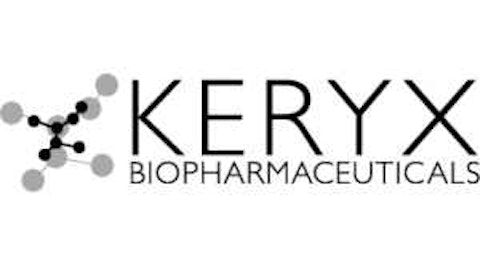When considering any stock for your portfolio, don’t be swayed by just the positives. Examine its pros and cons and decide whether its possible upside outweighs its risks. Let’s take a look at Astex Pharmaceuticals, Inc. (NASDAQ:ASTX) today and see why you might want to buy, sell, or hold it.
Founded in 1991 and based in California, Astex is a biotech company that specializes in small-molecule therapeutics and focuses primarily on cancer and hematology. (Before 2011, it was known as SuperGen.) With a market capitalization a little above $300 million, Astex is a small-cap company. Its stock is up about 23% over the past year.

One reason to consider buying Astex Pharmaceuticals is its business. With the world’s population growing, getting older, and living longer, demand for health-care products and services is likely to remain in demand.
Another reason to like Astex is its small size. While small-cap companies can be more volatile than their blue-chip counterparts, they can also grow more briskly and have more room to grow — assuming they execute smart strategies well.
One factor that can help a small biotech company become a bigger one is actually having products on the market — and Astex does. Its main product is Dacogen, treating myelodysplastic syndrome (MDS). Dacogen sales are expected to slump soon, though, due to its orphan drug exclusivity expiring in May. But the drug’s key competitor, Celgene Corporation (NASDAQ:CELG)’s Vidaza, already lost its patent protection and without generic competition yet, it’s still doing well and is approaching $1 billion in sales. Dacogen has also been approved to treat acute myeloid leukemia, or AML.
Another critical factor for biotech companies is their pipeline. Here, too, Astex looks good, with two potential winners — SGI-110, which targets AML, MDS, ovarian cancer, and liver cancer, and AT13387, which addresses cancers such as non-small-cell lung cancer, prostate cancer, and refractory gastrointestinal stromal tumors. But wait, there’s more! Astex has also partnered with some big pharma companies, as small biotechs often do. It’s working with AstraZeneca plc (ADR) (NYSE:AZN) on an experimental cancer drug and with Novartis AG (ADR) (NYSE:NVS) on drugs to tackle leukemia and more.
Astex’s financial statements offer more things to smile about and a few causes for furrowed brows. Revenue has been steadily rising (averaging more than a 25% annual growth rate over the past five years), but earnings have been falling, partly due to increases in research and spending. Free cash flow has also been shrinking, but has remained positive over the past few years. It has ample cash, too, which has been rising in recent years.
Sell
While small caps do have lots of room to grow, many of them don’t do so. Astex Pharmaceuticals’ stock price, recently around $3.50 per share, is firmly in penny stock territory, where extra-risky companies abound and many fortunes have been lost. It’s not a definite portent of doom, but it’s a red flag to consider.





